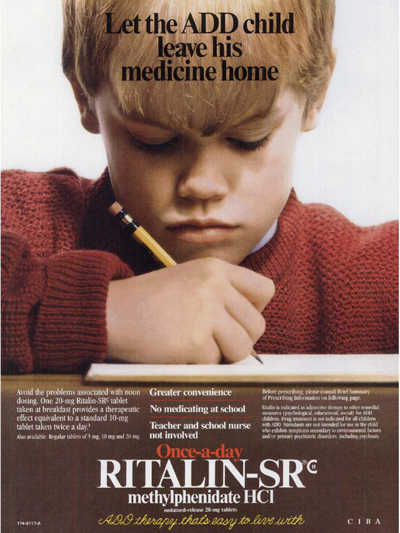
23 Jan ADHD Myths: Facts And Fiction
One of the most common ADHD myths is about a boy who was misbehaving in school. His mother took him to a psychiatrist for attention deficit hyperactive disorder (ADHD) medication to “make him behave”. The boy hated taking pills and he resisted, but his mother was adamant. After two weeks, the mother got a call from the school principal, who described how wonderfully her child was doing in school and how his improved behavior had even positively impacted the rest of the class.
The mother was astounded, given her son’s previous behavior, and she asked her son about the turnaround. He told her that the pills were great and were making a big difference in his school experience. Given his dislike of swallowing pills, the mother was surprised, so she asked her son how he overcame his problem with taking pills. The boy gave his mother a puzzled look and responded, “Swallow them? I would never do that. Every day, I go to the teacher’s lounge, make a coffee, put the pills in, mix it, and then give it to my teacher. It’s really making a big difference. Thanks, Mom!”
Although this story is most likely fictional, it highlights how this condition can be misdiagnosed or
misunderstood in various situations. It is important to clarify some of these ADHD myths and misconceptions to effectively help our children (and often ourselves) manage with the condition.
1) Myth – ADHD is a childhood disorder
When you think of ADHD, you probably imagine one of the most common myths – a kid jumping up and down in school, or spacing out and looking out of the window in the classroom. However, ADHD is relatively common in adults as well as children.
Instead of the hyperactive and disruptive symptoms that can be seen in younger children, adults with ADHD often present with difficulties in organization, planning, delaying gratification, following directions, concentrating, and completing tasks in a timely manner.
It has been estimated that nearly 4% to 5% of adults in the United States have it, but few adults are ever evaluated or diagnosed with it.
2) Myth – If a child cannot focus, they probably have ADHD
As a neuropsychologist who specializes in understanding a child’s pattern of strengths and weaknesses, this myth is most frustrating. Difficulties in concentration and focusing can come from many sources, and ADHD is only one fish in that large pool.
Problems with sleeping, eating, vision, hearing, learning, sensory input, emotional well-being, and medical issues are a few of the examples that can cause a child to be inattentive or hyperactive. This is why it is critically important for a child who is struggling with attention or behavioral problems to be evaluated by a trained professional before a diagnosis is given.
3) Myth – The only way to manage ADHD is with medication
One of the most widespread ADHD myths is that the condition can only be treated with medicine. Although medication has been shown in research to be effective in managing some of the symptoms of ADHD, the best treatment option is often a mix of medication and environmental changes. Changes in classroom/home set up, behavior modification plans, regular exercise, and maintaining a proper diet are a few of the non-medication factors that can greatly influence a child’s ability to function with ADHD.
4) Myth – Parents are often to blame for a child who has ADHD
In working with families with children who have ADHD, this myth is often heartbreaking. Many parents believe they have caused their child to have the behavioral or attentional difficulties and find it difficult to forgive themselves.
In truth, symptoms of ADHD are not caused by bad parenting or a sign of family discord. Managing and helping a child with ADHD requires an enhanced skill set that almost all parents do not have inherently, and many parents take years to learn the techniques necessary to properly help their child.
Working with a trained behavior specialist (e.g. BCBA) to master these skills can make a major impact on the life of the child, the parent, and the family as a whole.
5) Myth – There are just as many children with ADHD as there always have been
Attention deficit hyperactive disorder (ADHD) is one of the most common diagnoses for school-age children, especially boys. According to a recent study, rates of ADHD in children age 4-17 have risen from 6% of all children in 1997 to over 10% in 2016, with boys carrying a prevalence of nearly 14% and girls 6% (Xu et al, 2018).
In the United States, there are currently over 5.4 million children who have been diagnosed with the condition. Many researchers point to improvements in awareness and support which have helped professionals identify more children who present with ADHD symptoms, although a clear explanation for the increase in prevalence is still elusive.
6) Myth – Children with ADHD are always spaced out
Although there are many cases of children with ADHD who appear to be “unable” to pay attention, it is usually related to the format or material they are learning rather than an inability to focus on anything.
According to Dr. Russell Barkley, one of the foremost researchers and experts on ADHD, the ADHD condition can be understood as a difficulty with regulation and impulsivity.
When the environment has stimuli that create an impulse to shift attention, it is difficult for a child with ADHD to ignore those distractions. However, when the environment provides immediate rewards for maintaining attention (i.e. video games), even children with ADHD are often able to pay attention very well.
One way of understanding it is that children with ADHD need more external motivation with immediate feedback to pay attention than other children, but this motivation is hard to find in an everyday classroom or work environment. There has been some research on a phenomenon of hyperfocusing in some children with ADHD, but findings have been mixed.
7) Myth – ADHD is a behavioral disorder and emotional problems are unrelated
One symptom that all parents and teachers of children with ADHD are very familiar with is meltdowns. Children with ADHD are at a greater risk of having these emotional outbursts or shutting down, and their correlation is related to the general difficulty that children with ADHD have in regulating themselves.
As with attention and hyperactive behavior, children with ADHD often have difficulty regulating or “cooling down” emotions they feel. When they are excited, they are often overly enthusiastic, but when they are frustrated or upset, they can become very angry and are unable to calm themselves.
8) Myth – ADHD medication is relatively new and has not been studied as much as other medication
Although rates of ADHD have increased over the last several decades, the condition has been diagnosed for many years before that. The usage of stimulants for treatment has been studied for over 80 years, with some studies dating back to the 1930’s.

Source: NY Times
Although there are many different types of medication used in the treatment of ADHD, many recent “new” medications have the same medicinal component as previously studied versions but are packaged differently (e.g. patches and extended release tablets).
As with every medication, ADHD medications have side effects, and new research is always coming out as to their specifics. It is important to consult with a pediatric psychiatrist when considering medication for children with ADHD.
9) Myth – ADD and ADHD are two different disorders
This confusion dates back to 1994 when the Diagnostic and Statistical Manual of Mental Disorders stopped using the diagnosis “Attention Deficit Disorder” and instead used “Attention Deficit Hyperactive Disorder” with various subtypes. Currently, in the 5th version of the manual, there are 3 subtypes.
- Hyperactive/Impulsive
- Inattentive
- Combined – both Hyperactive/Impulsive and Inattentive
10) Myth – ADHD has as many positives as it does negatives
As far as ADHD myths go, this one is somewhat controversial. There are definitely some benefits that some people with ADHD experience, such as being spontaneous, able to get involved in many pursuits, and having high energy.
However, taken as a whole, the difficulty with focusing, controlling impulses, planning and organizing, tolerating frustration, and achieving long-term goals, usually outweighs any benefit associated with the condition.
Read Next:
ADHD Neuropsych Evaluations With Dr. Malkin
ADHD myths are all too common, but increasing our understanding of this condition with its various presentation types, symptoms and treatment factors can greatly improve our ability to help our children maximize their strengths and reach their potential. It may even help us manage some of our own struggles, like a little boost in the morning coffee!
If you think your child or teen has ADHD, a neuropsychological evaluation with Dr. Malkin can help. He will perform a comprehensive evaluation of your student. After the assessment, he will recommend the best treatments and learning techniques for their needs. Book an appointment or contact us with any questions you may have using the link below.